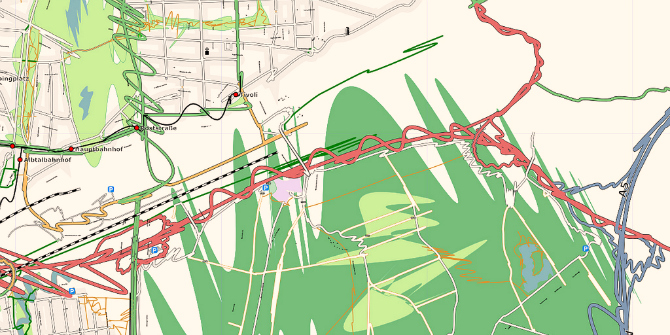As the famous saying attributed to Kurt Lewin goes, “there is nothing as practical as a good theory”. In this post James Georgalakis makes the case that bridging the gap between theory and practice is not simply a matter of more refined communication, but of creating structures in which policy influencers and academics can productively learn from each other.
There is still a gulf between practical, experience-based knowledge of engaging research with policy and the corresponding academic theory-based field. I argue here that the choice between being an evidence into policy thinker, or a policy influencing practitioner, is a false dichotomy – it helps to be a bit of both.
Scholars of policy research like to point out that the relationship between evidence and policy is ‘non-linear’ and complex. Meanwhile, practice-based advice for influencers is to make research more accessible and policy relevant. This tends to solicit much eye rolling from both academics and activists. Whole swathes of academic writing on evidence informed policy and practice is largely ignored by policy advocates, whilst researchers tend to grossly undervalue practice-based expertise. The practitioner-researcher who specialises in research engagement is still quite a rare breed. There is relatively little interaction between scholars in this emerging field (who themselves are sub-divided into many different academic disciplines) and those operating at the coal face, seeking to utilise evidence to promote change in policy and practice.
Whole swathes of academic writing on evidence informed policy and practice is largely ignored by policy advocates, whilst researchers tend to grossly undervalue practice-based expertise
I have written before about the value of bringing together these sectors and disciplines to share learning. Now more than ever, with COVID-19 placing such a strong emphasis on the benefits and the enormous challenges of shaping policy with evidence, we need to urgently look at how theory-based approaches can be directly combined with good practice. How- to-guides and lists of top tips for researchers and practitioners are rarely sufficient. They tend to offer a magic bullet – or a succession of bullets that are highly contextualised: Do these things to run successful parliamentary events; do these things to get your research in the media; this is how to write the perfect policy brief. None of these more technical approaches identify the main barriers to engagement with evidence as being political. Concerns around the evidence base for COVID-19 responses rarely bemoan the absence of more expertly crafted parliamentary events or more clearly written policy briefs.
However, it would be a mistake simply immerse those hoping to improve the use of evidence, whether in health, sustainable development, or poverty reduction, in theory and academic concepts. An understanding of complexity theory, or a detailed knowledge of the literature on institutionalism and public policy, is not going to enhance an organisation’s impact. What is required is a third way that values both the theory that helps us understand processes and learn and the practices that improve policy engagement. If you want to see a pretty sound example of where this balance sits you might want to check out this report by Oxfam on their own experience of shaping policy. Some of the best support for these combined approaches sit within well-funded programmes, that as part of their implementation, seek to build capacity to produce and use evidence for policy. Or there is training and workshops aimed at relatively narrow sectors. Such as impact training for academics in UK universities, research literacy in government departments or advocacy training for activists in NGOs.
Less common are opportunities that bring together researchers, civil servants, activists and programme managers and share learning between sectors and geographies. A mixed group like this has much to learn from one another. They seek frameworks that will help them navigate their own complex (and yes non-linear) policy environments which provide actionable plans. The learning they seek goes beyond good communications (which is undoubtedly important). They want approaches for analysing their policy context, developing their plans for engagement and identifying the assumptions they may have made about how evidence adds value to policy processes. Unless we can provide more spaces for people to take a more thoughtful approach to engaging evidence with policy, without over-academicizing it, whilst honing their capacity to actively engage with the politics of knowledge, then we will continue to fail to repeat the trick of turning research into action.
Note: This article gives the views of the author, and not the position of the Impact of Social Science blog, nor of the London School of Economics. Please review our Comments Policy if you have any concerns on posting a comment below.
Image Credit: Adapted from Alex Bateman, 8.4.4 Variant, via Flickr reproduced under a CC BY-SA 2.0 licence









Amen!!! Would only add a comment on the usefulness of this approach: in complexity there is a great deal of uncertainty. Practice and experimentation is also an important method of adding evidence to what works. The treatment of COVID-19 in hospitals is a great example of this.